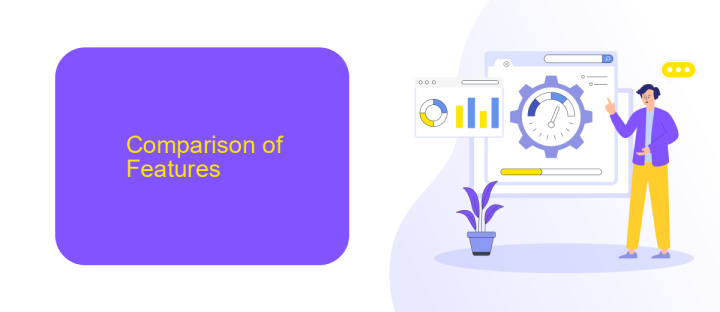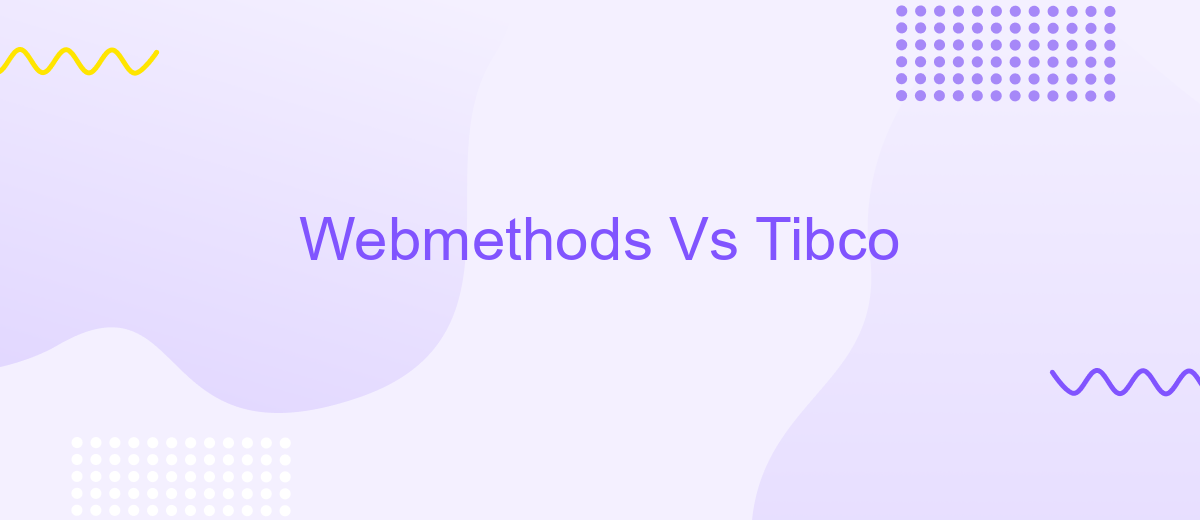Webmethods Vs Tibco
In the ever-evolving landscape of enterprise integration, choosing the right middleware platform is crucial for seamless operations. This article delves into a comparative analysis of two industry giants: Webmethods and Tibco. By examining their features, performance, and use cases, we aim to provide insights that will help organizations make informed decisions tailored to their specific needs.
Introduction
In the ever-evolving landscape of enterprise software, integration platforms play a pivotal role in ensuring seamless communication between various business applications. Two such prominent platforms are Webmethods and Tibco, both offering robust solutions for enterprise integration. This article aims to provide a comprehensive comparison between these two platforms, highlighting their key features, strengths, and areas where they differ.
- Webmethods: Known for its extensive support for various protocols and standards, making it versatile for complex integrations.
- Tibco: Offers a strong focus on real-time data processing and analytics, which is crucial for businesses requiring immediate insights.
- ApiX-Drive: A modern integration service that simplifies the process of connecting various applications, making it easier for businesses to automate workflows without extensive technical knowledge.
Both Webmethods and Tibco have their unique advantages, catering to different business needs. While Webmethods excels in protocol support, Tibco shines in real-time data capabilities. Additionally, services like ApiX-Drive offer a user-friendly approach to integrations, providing businesses with more flexibility and efficiency in managing their workflows. Understanding these differences can help organizations choose the right platform to meet their specific integration requirements.
Comparison of Features

When comparing Webmethods and Tibco, one of the primary differences lies in their integration capabilities. Webmethods offers a robust suite for enterprise integration, supporting a wide range of protocols and data formats. It excels in providing a seamless integration experience with its comprehensive set of tools for business process management and API management. Tibco, on the other hand, is known for its strong focus on real-time data integration and analytics. Its Event-Driven Architecture (EDA) allows for efficient handling of streaming data, making it a preferred choice for applications requiring real-time data processing.
Another significant distinction is in their user interfaces and ease of use. Webmethods provides a more user-friendly interface, which is particularly beneficial for organizations with limited technical expertise. It also integrates well with third-party services like ApiX-Drive, facilitating easy setup and management of integrations. Tibco, while powerful, often requires a steeper learning curve due to its complex features and configurations. However, its advanced capabilities in data visualization and predictive analytics provide a competitive edge for businesses that require in-depth data insights.
Use Cases and Case Studies

Webmethods and Tibco are both powerful integration platforms, each with its own strengths and ideal use cases. Webmethods is often favored in scenarios requiring robust B2B integrations and EDI transactions, while Tibco excels in real-time data distribution and complex event processing. Both platforms are utilized across various industries, including finance, healthcare, and retail, to streamline operations and enhance data flow.
- Financial Services: Webmethods enables seamless integration with banking systems for real-time transaction processing, while Tibco supports high-frequency trading applications with low-latency data distribution.
- Healthcare: Webmethods facilitates secure patient data exchange between healthcare providers, whereas Tibco ensures real-time monitoring and alerting for critical patient conditions.
- Retail: Webmethods integrates e-commerce platforms with ERP systems for efficient order processing, and Tibco provides real-time inventory updates and demand forecasting.
Case studies have shown that integrating Webmethods with ApiX-Drive can further enhance automation by simplifying API management and data synchronization. Similarly, Tibco's capabilities can be amplified by ApiX-Drive's user-friendly interface, enabling non-technical users to set up complex integrations with ease. These integrations not only save time but also significantly reduce the risk of errors, proving beneficial for businesses of all sizes.
Benefits and Challenges

When comparing Webmethods and Tibco, both platforms offer robust integration solutions for businesses, but each comes with its own set of benefits and challenges. Webmethods is known for its comprehensive suite of tools that streamline business processes and enhance efficiency. It offers a user-friendly interface and strong support for various integration scenarios, making it a preferred choice for many enterprises.
On the other hand, Tibco excels in real-time data integration and analytics, providing businesses with the ability to make data-driven decisions quickly. Tibco's strong focus on event-driven architecture and scalability makes it suitable for organizations that require high-performance integration solutions.
- Webmethods: User-friendly interface, extensive toolset, strong support for multiple integrations.
- Tibco: Real-time data integration, robust analytics, scalability, event-driven architecture.
Despite their strengths, both platforms face challenges. Webmethods can be complex to implement and may require significant training for users to fully leverage its capabilities. Tibco, while powerful, can be costly and may require a substantial investment in infrastructure. Tools like ApiX-Drive can help bridge these gaps by offering simpler, cost-effective integration solutions, making it easier for businesses to connect various applications without extensive technical expertise.
Conclusion
In conclusion, both Webmethods and Tibco offer robust solutions for enterprise integration, each with its own set of strengths and limitations. Webmethods excels in its user-friendly interface and strong support for a wide range of protocols, making it an excellent choice for organizations looking for a versatile and easy-to-use integration platform. Tibco, on the other hand, shines with its high-performance capabilities and extensive scalability, ideal for businesses that require a more powerful and flexible integration solution.
Ultimately, the choice between Webmethods and Tibco will depend on the specific needs and goals of your organization. For those looking to streamline integration processes further, services like ApiX-Drive can provide additional support by automating and simplifying the integration setup. By leveraging these tools, businesses can achieve more efficient and seamless integration, ensuring that their systems work harmoniously together to drive success.


FAQ
What are the primary differences between Webmethods and Tibco?
Which platform is better for real-time data processing?
How do Webmethods and Tibco handle API management?
Can I integrate Webmethods or Tibco with cloud services?
What are the alternatives for automating integrations if I don't want to use Webmethods or Tibco?
Time is the most valuable resource in today's business realities. By eliminating the routine from work processes, you will get more opportunities to implement the most daring plans and ideas. Choose – you can continue to waste time, money and nerves on inefficient solutions, or you can use ApiX-Drive, automating work processes and achieving results with minimal investment of money, effort and human resources.

